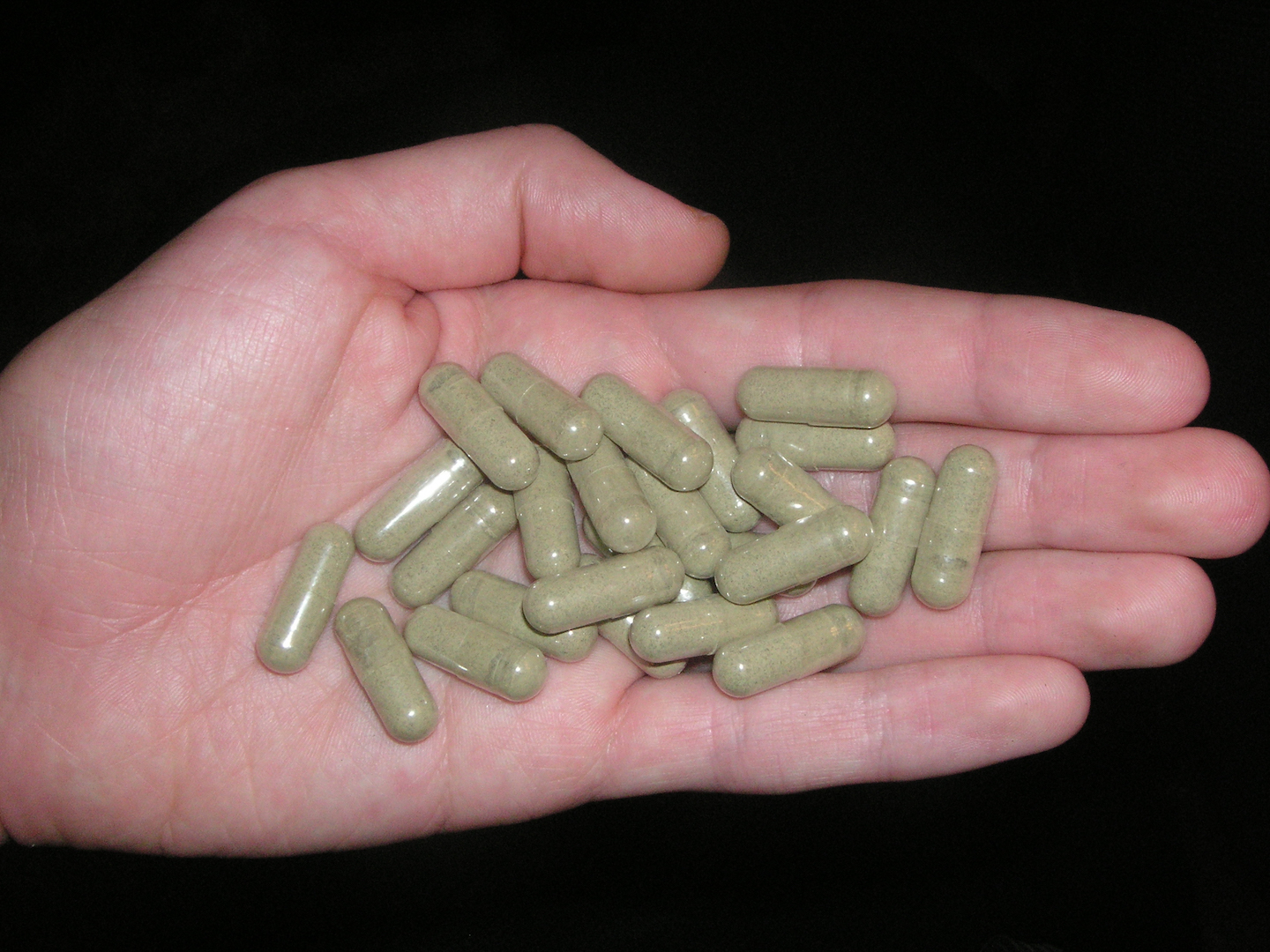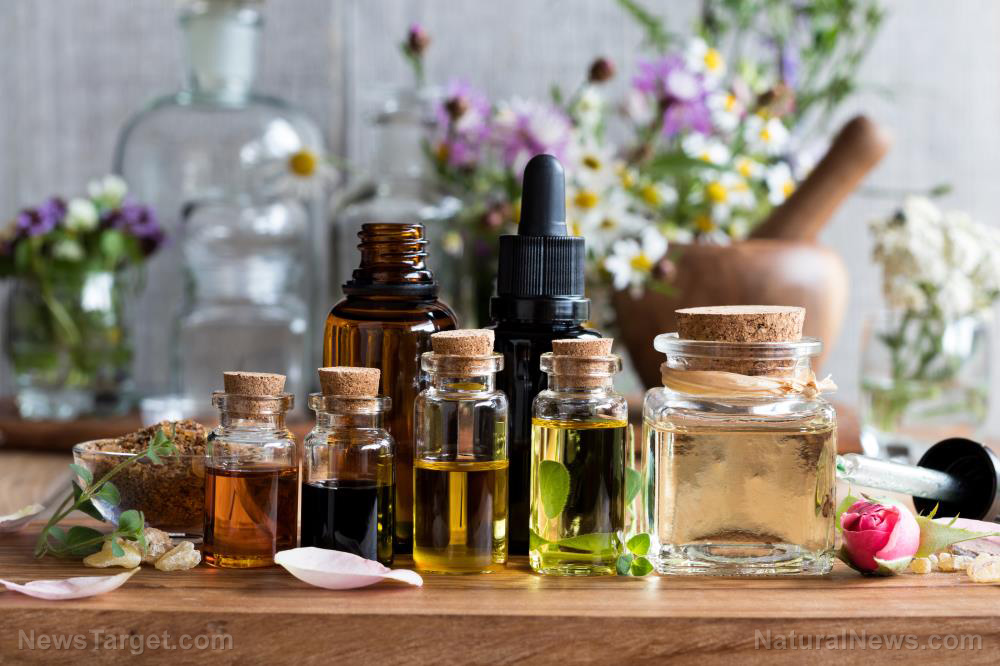Can this Asian medicinal plant be the key for treating depression? What you need to know about kratom
05/06/2020 / By Michael Alexander

People suffering from depression and other mental and mood disorders may want to take a closer look at the kratom plant.
Kratom (Mitragyna speciosa) is a tropical evergreen native to Southeast Asia, where it’s used as a herbal remedy for conditions like coughing, chronic pain, diarrhea and fatigue. The plant is best known — especially in the naturopathic circles — for its psychoactive properties. These properties, experts say, stem from 40 active compounds, chief of which are mitragynine and 7-Hydroxymitragynine.
According to experts, these two alkaloid compounds act upon various receptors in the brain, and, depending on the dosage, cause effects similar to those of either stimulants or opioids.
For example, in small doses of one to five grams, kratom acts as a stimulant, which makes people feel more alert and social. In higher doses of five to fifteen grams, kratom exhibits a sedative effect, similar to that of opioids morphine and codeine. This means that at this dose, kratom can cause people to feel calm, relaxed and euphoric. When taken in doses above 15 grams, kratom’s sedative effects become much more pronounced and may even cause people to lose consciousness.
It is because of this array of psychoactive properties that people have proposed using the plant a natural alternative to psychiatric medication for mental problems such as depression.
Exploring the potential health benefits of kratom
In a study published in the medical journal Drug and Alcohol Dependence, people who used kratom to self-treat mental health conditions, such as depression and anxiety, reported a perceived reduction in their symptoms.
“Kratom shows a dose-dependent opioid-like effect providing self-reported perceived beneficial effects in alleviating pain and relieving mood disorders,” explained Oliver Grundmann, a researcher from the University of Florida’s Department of Medicinal Chemistry.
“I would say that we have relatively good anecdotal emerging evidence that kratom has benefits for the average user as long as we consider how much kratom is being used and what products are being used,” he told NBC.
The results of Grundmann’s earlier research on the plant and its effects on mental health were echoed in a 2018 review by researchers from the University of Rochester in New York and the University of British Columbia, which looked at the link between kratom use and mental health. (Related: Too good to be true: Is kratom a breakthrough treatment or a dangerous drug?)
In that study, the researchers found that kratom enhanced the mood and reduced anxiety symptoms in the people who used it. The authors also noted that kratom exhibited harm reduction potential for substance users who want to quit opioids.
Other reported benefits from the kratom plant include pain relief, as well as a general increase in one’s alertness, focus and energy.
Scientists call for more research
Despite its apparent benefits, however, experts note that the kratom plant does exhibit potential side effects, both physical and cognitive.
According to scientists, taking high doses of kratom — whether in the form of tea, dried and fresh leaves, concentrate, gum or powdered extracts — may cause users to experience side effects such as dehydration, constipation, loss of appetite, nausea and seizures, as well as psychosis and hallucinations.
Due to its psychoactive nature, coupled with its distinct sets of purported health benefits and side effects alike, many experts are calling for increased research on kratom and its actual effects on the body.
“If it does have benefits for either addiction or chronic pain, we should know, and it is critical that we better define the risks of using kratom, so that people are more accurately informed,” explained Peter Grinspoon in Harvard Health Blog.
According to Grinspoon, authorities can ensure the safety of kratom users by regulating the plant and its derivatives, noting that the absence of oversight or quality control will only ensure that the plant remains potentially dangerous for its consumers.
Regulating the plant, Grinspoon said, will basically assure people of the quality of the supplements they are taking, since not only will the products be held to much stricter standards in terms of purity and cleanliness, they will also be produced in standard doses.
“It would be safer if people knew the exact dosages they were consuming and that it was free of contamination,” he added.
Grinspoon also espoused the value of educating consumers about kratom, noting that consumers and users who know of the plant’s dangers and potential benefits, would be far less vulnerable to misleading claims by unscrupulous manufacturers.
For more stories on natural cures and supplements, visit NaturalCures.news.
Sources include:
Tagged Under: beatdepression, depression, herbal medicine, Herbs, kratom, mental health, natural cures, natural supplements, research
RECENT NEWS & ARTICLES
COPYRIGHT © 2017 DEPRESSIONSYMPTOMS.NEWS
All content posted on this site is protected under Free Speech. DepressionSymptoms.news is not responsible for content written by contributing authors. The information on this site is provided for educational and entertainment purposes only. It is not intended as a substitute for professional advice of any kind. DepressionSymptoms.news assumes no responsibility for the use or misuse of this material. All trademarks, registered trademarks and service marks mentioned on this site are the property of their respective owners.



















